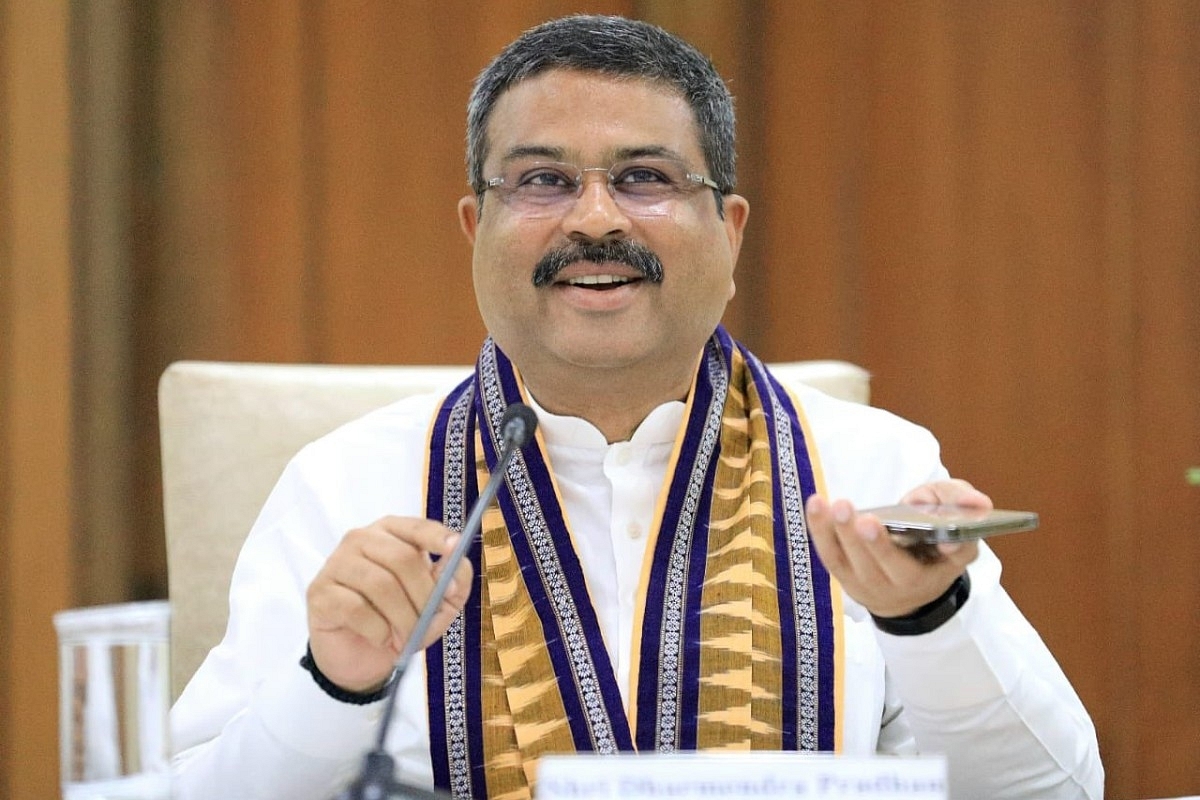News Brief
Six Highlights Of National Curriculum Framework: Two Board Exams, Software To Set Question Paper, And More
- The NCF emphasizes the need for a broader range of competencies to be evaluated.
- It says that students in grades 11 and 12 will need to study a minimum of two languages.

Dharmendra Pradhan in Joint Workshop of the National Curriculum Framework Oversight Committee and National Syllabus & Teaching-Learning Material Committee
Union Minister of Education, Dharmendra Pradhan announced the National Curriculum Framework for School Education (NCF) on Wednesday (23 August).
The NCF is developed on the vision of the National Education Policy (NEP) 2020 and suggests the following things:
1. Board exams will be conducted twice a year so that students get more flexibility, time and opportunities. If a student misses an exam, one gets a second opportunity.
"Board exams will be offered at least twice a year. Students can then appear for a board exam in subjects they have completed and feel ready for. They will also be allowed to retain the best score," said the Ministry.
The existing single-exam system is criticized in the NCF for limiting students' ability to demonstrate their readiness and retake the exam if needed.
The framework underscores that traditional board exams primarily assess a student's ability to recall factual information, which falls short of the true purpose of examinations.
2. The National Council of Educational Research and Training (NCERT) has suggested the creation of a "comprehensive test item bank."
This bank will serve as a repository of test questions that can be utilized to develop exams using appropriate software. The NCF envisions that this initiative will pave the way for on-demand examinations in the foreseeable future.
3. The NCF also talks about individuals involved in creating and assessing board exam papers. According to the Ministry of Education, they will be required to complete university-certified courses before undertaking these responsibilities.
4. On the language policy, it says that students in grades 11 and 12 will need to study a minimum of two languages, with one of them being mandatory to be an Indian language.
5. The NCF emphasizes the need for a broader range of competencies to be evaluated, as the current focus on rote memorization leads to an incomplete or inaccurate representation of student learning.
To shift away from the existing high-pressure approach of board exams, the NCF emphasized that the assessments will focus on evaluating comprehension and the attainment of skills.
6. The Ministry will also discontinue the long-standing tradition of covering textbooks. Additionally, it aims to streamline the expenses related to textbooks.
Back in 2020, the Ministry of Education stated that the NEP 2020 was implemented to introduce a range of reforms in both school and higher education, encompassing technical education.
Support Swarajya's 50 Ground Reports Project & Sponsor A Story
Every general election Swarajya does a 50 ground reports project.
Aimed only at serious readers and those who appreciate the nuances of political undercurrents, the project provides a sense of India's electoral landscape. As you know, these reports are produced after considerable investment of travel, time and effort on the ground.
This time too we've kicked off the project in style and have covered over 30 constituencies already. If you're someone who appreciates such work and have enjoyed our coverage please consider sponsoring a ground report for just Rs 2999 to Rs 19,999 - it goes a long way in helping us produce more quality reportage.
You can also back this project by becoming a subscriber for as little as Rs 999 - so do click on this links and choose a plan that suits you and back us.
Click below to contribute.
Latest